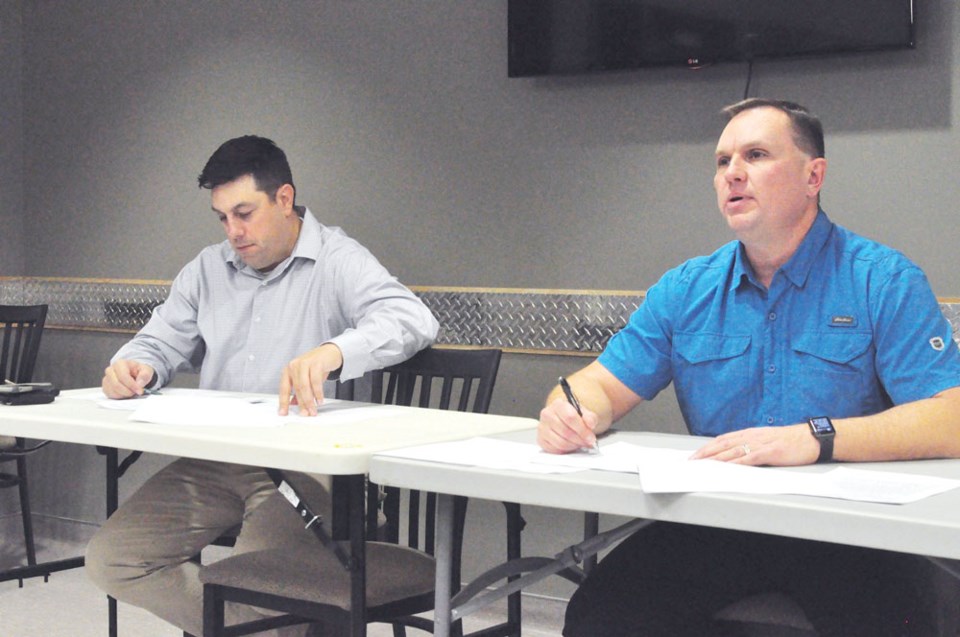The Estevan Bruins Hockey Club held their annual general meeting with some good news temporarily.
The money from the Western Canada Cup was counted in this year's financial statement, which netted $970,058 in team revenue and expenses of $594,857 for a gross profit of $4375,201 in the financial year ending April 30, 2017.
However, the expenses of $303.353.358 were slightly higher this year compared to last and with a $38 loss on disposal of capital assets, the team made $71,805 last year compared to 2016's loss of $32,134.
“If you take that (Western Canada Cup) revenue out, it likely shows a loss of about $40,000 for the year, which is very comparible to 2016,” said team president Cory Prokop after the meeting at the Crescent Point Lounge in Affinity Place Tuesday.
Revenues from game tickets were slightly down for the regular season and the playoff run of two rounds didn't add nearly as much to make up for the loss in corporate support ($380,514 last year versus $317,979 this year).
“We didn't see the crowds we were hoping to see (last year),” said Prokop. “I don't know what the reason for that was, maybe people were just busy, cold weather. There was no reason for people not to come out to the games.”
Season ticket revenue was down from $130,063 in 2016 to $90,310 in 2017.
The corporate revenue can be traced to the difficult economic times in the Estevan region, Prokop said.
“This year I think we've seen a little bit of a pickup on the corporate side but season tickets are down again this year as far as revenues. We're going to have to see walkup on game day seats for this year,” he said.
At the end of the financial year, the Bruins are $99,526 in the hole, compared to the $171,331 they were after last year.
“I'd like to see a financial situation where we'd like to see a bit of a reserve of $20-$25,000 every year rather than going backwards and going into our credit line,” Prokop said. “If we can string three, four, five years together like that and have a pool of money of about $75,000 in a rainy day fund, that would allow us to be with some of the more elite teams in Canada... from a recruitment standpoint, and just see that we're consistently putting a winning team on the ice.”



